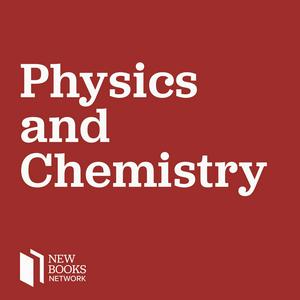Facing Infinity: Black Holes and Our Place on Earth
Humanity’s relationship with black holes began in 1783 in a small English village, when clergyman John Michell posed a startling question: What if there are objects in space that are so large and heavy that not even light can escape them? Almost 250 years later, in April 2019, scientists presented the first picture of a black hole. Profoundly inspired by that image, physicist Jonas Enander has traveled the world to investigate how our understanding of these elusive celestial objects has evolved since the days of Michell. With the particular goal of discovering our human connection to black holes, Enander visits telescopes and observatories, delves deeply into archives, and interviews over 20 world-leading experts, including several Nobel laureates.
In Facing Infinity: Black Holes and Our Place on Earth (The Experiment, 2025), Dr. Enander takes us on a spellbinding journey into the universe’s greatest mystery, deciphers the most mind-bending science, and answers questions surrounding how black holes work, where they come from, and what role they play in the universe. Along the way, he discovers how our desire to understand black holes inadvertently paved the way for the invention of Wi-Fi and the calibration of our global navigation satellites, how astronomical discovery became entangled with colonial conflicts, and how our looking outward gave us critical evidence of the impact of climate change. Facing Infinity helps us appreciate and understand as never before these mysterious celestial objects and our surprising connections to them.
Our guest is: Dr. Jonas Enander, who is a science communicator with a background in cosmology and astrophysics. His previous research focused on dark matter and Einstein’s theory of general relativity. He has worked as a physics teacher at the KTH Royal Institute of Technology in Stockholm, and participated in the construction of the IceCube Neutrino Observatory at the South Pole. He hosts the podcasts Spacetime Fika and Rumtiden.
Our host is: Dr. Christina Gessler, who is a freelance editor. She is the producer of the Academic Life podcast, and writes the show’s newsletter at ChristinaGessler.Substack.Com.
Playlist for listeners:
The Space-Suit Technician
The Climate Change Scientist
The Well-Gardened Mind
Doctors by Nature
The Surprising World of Wasps
The Killer Whale Journals
The Shark Scientist
A Day in the Life of Bugs
Welcome to Academic Life, the podcast for your academic journey—and beyond! You can support the show by downloading and sharing episodes. Join us again to learn from more experts inside and outside the academy, and around the world. Missed any of the 275+ Academic Life episodes? Find them here. And thank you for listening!
Learn more about your ad choices. Visit megaphone.fm/adchoices


